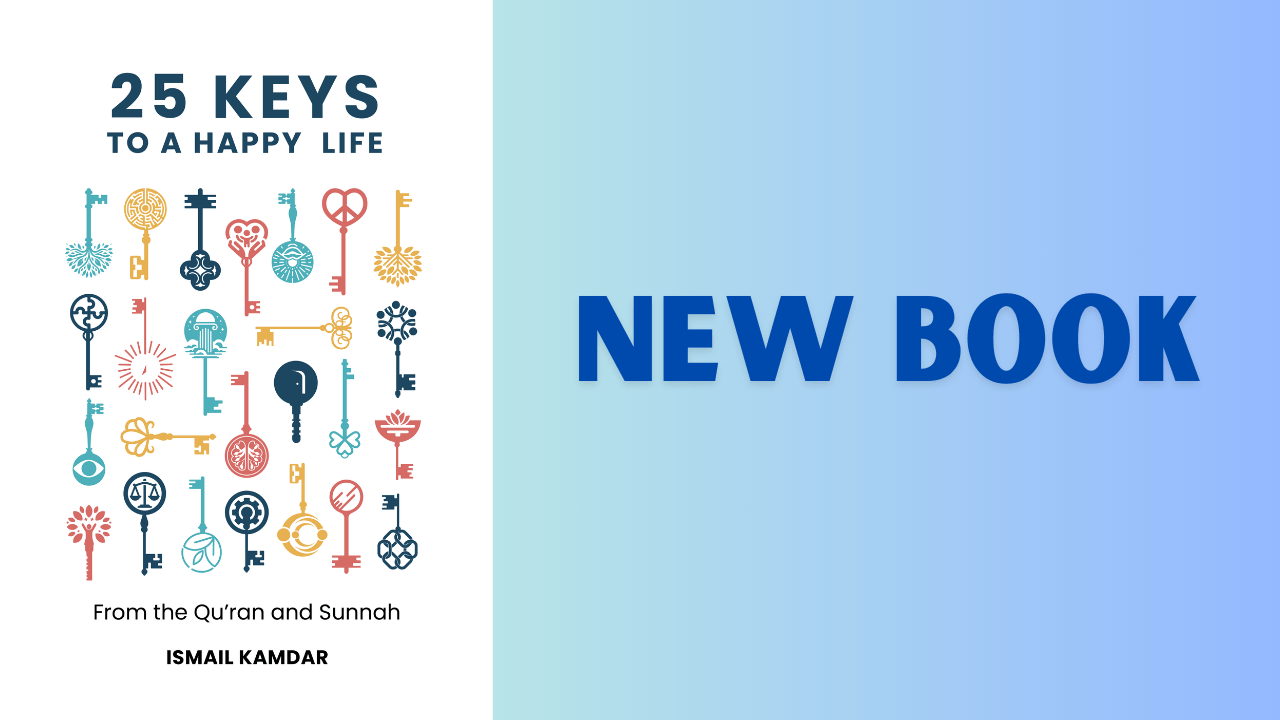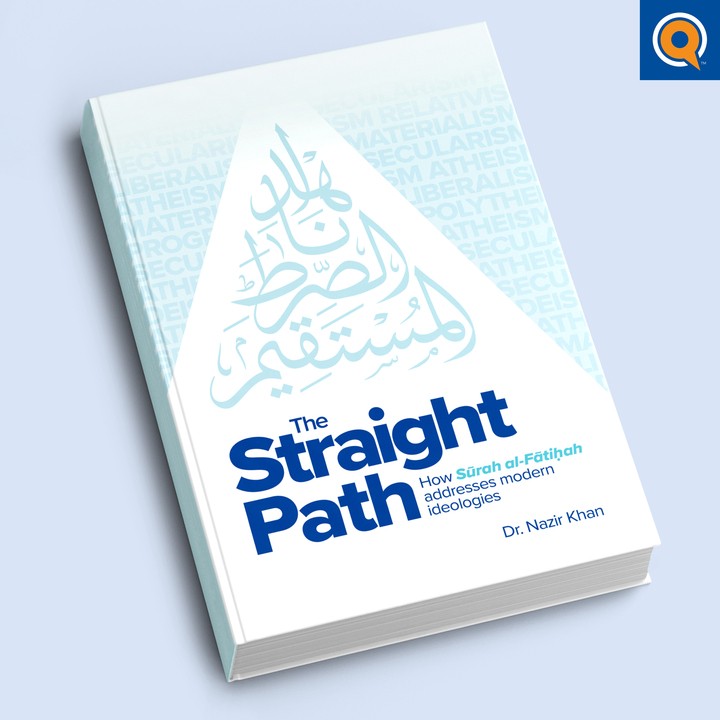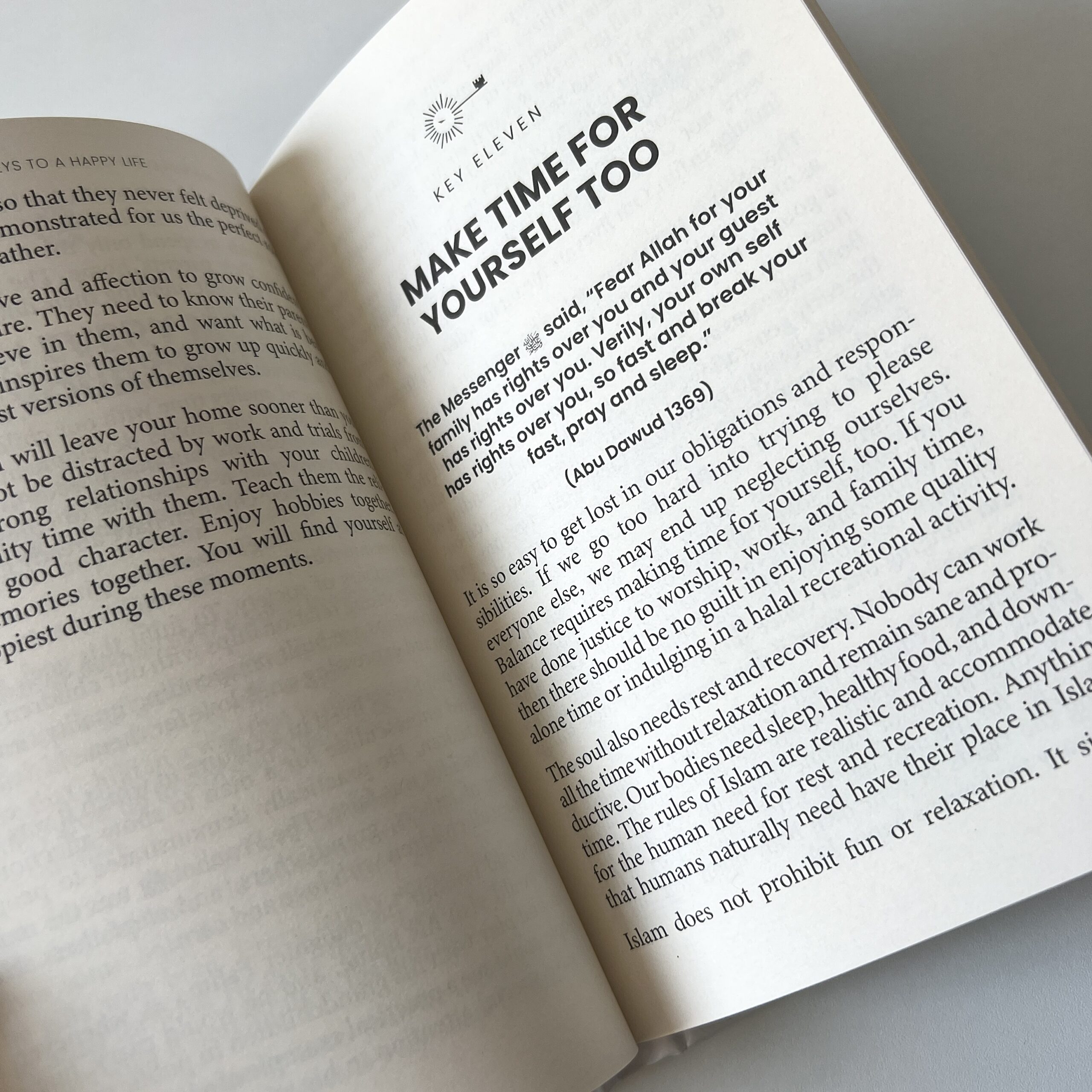Why the book is so short?
Our latest book, 25 Keys to a Happy Life, is now available for purchase. One of the first things you will notice is that this book is a lot shorter than the books I usually write. Compared to my previous book on ʿUmar bin ʿAbd al-ʿAzīz which was over 300 pages, this book is only about 70 pages.
It’s a very short book. Very easy to read, very simple to understand. That was deliberate and on purpose. The reasons why I made this book short are two. #1 I wanted this book to reach people who don’t usually read books. So, one of my goals behind becoming an author is to revive the culture of reading amongst Muslims. And for many people who have not read a book in many years, It’s a bit overwhelming to jump straight into a 300 or 400 page book. So can we produce books that are beneficial but also short?
If we just look at our history, the answer is yes! There have been many short books written throughout Islamic history that are extremely beneficial, and that have gone on to benefit people for hundreds of years. So I challenge myself to keep this book short. For every chapter, there was a lot more than I wanted to say but I forced myself to limit each chapter to 1, 000 to 2, 000 words. I wanted to keep it as short as possible and as simple as possible. So that even people who don’t usually read books would be motivated to read it. It is just 25 chapters. Each chapter is around three or four pages. It’s something that anybody can read and digest in small portions and that would make it beneficial to more people.
#2 I wanted it to serve as a textbook. I wanted it to be a book that could be explained in more details. Islamically, when we write books, our books are meant to be taught, not just read. When teaching a book, I think it’s better that the book is summarized and simple. It should be to the point the teacher should be able to expand upon it. I hope that this book would be something that people teach and explore in more details. I plan to do a full series explaining every chapter of this book in more detail, and I hope others would do so as well.
Why I wrote this book?
There are two reasons for writing this book, one is personal and the other communal. My personal reason is as follows.
Those of you who know me know that the past six years of my life have been very difficult. I’ve been through many trials, one after the other. Often going through many of them at the same time. In Ramadan 1444/2023, when I was writing this book, I was going through two of the most difficult trials in my life. Alhamdulillah, both these trials ended a week ago, one after the other.
Last Ramadan, I decided that I’m not going to write any book during Ramadan. Instead, I wanted to focus on my own soul and helping myself think better, helping myself think correctly and work through these difficult times. So I started writing some notes to myself on how to maintain a happy mindset, how to be more content, how to have inner peace during difficult times. By the 27th of Ramadan, I had written this book, Alhamdulillah.
Originally, it wasn’t meant to be written as a book. It started off in the first week of Ramadan as notes to myself on how to think better. But as I wrote every day for an hour, I found it developing more and more and I realized that this would make a good book. So I shifted how I wrote it and by the 27th of Ramadan the first draft of this book was ready. wrote this during the month of Ramadan to myself to help me get through some difficult times.
The Primary Themes of the Book
The other reason why I chose this topic, 25 Keys to a Happy Life, is that we are living in a time of unimaginable levels of sadness and depression with disturbing rates of suicidal tendencies. It is a time where a lot of people are not happy, particularly in the West. When I was growing up, back in the 90s and early 2000s, the West was very optimistic. It was a time of the pursuit of happiness. There was this idea that modernity is going to bring happiness and all of that failed in our lifetime.
We saw all of that fail and now in post modernity, nihilism has taken over. The younger generation are very pessimistic about life. They have this doom and gloom mindset about the future. Many people don’t have any motivation to live life or to work hard. Many people that I talk to have a very negative and pessimistic understanding of life and the world. They are purposeless and do not have hope for the future. Many don’t want to make anything of their lives and they’re just stuck in this negative mindset. How do we pull people out of this mindset? This book is an attempt at doing so.
My idea was to go back to that which made the early generations better. The early generations followed the Quran and Sunnah, they followed Islamic principles. Those civilizations that were built upon Islam were civilizations in which people, in general, were happier. This happiness comes from a very natural place, and there are principles we can follow to revive this our lives today.
There are very natural sources of happiness that modernity has cut us of from. They have separated us from the natural sources of happiness and tried to replace it with artificial happiness. These new artificial sources of happiness did not work. You can see this in almost every modern ideology. For example, liberalism gives us this idea that the more free you are, the happier you will be.
Yet we see in these lands where people have unrestricted freedoms, they also have the highest suicide rates. Islam is not against freedom, we just have a different understanding of freedom from liberalism. This liberal type of freedom, the freedom to pursue any sin that you like publicly, has not led to happiness. Likewise in capitalism, there is this mindset that the more money I have, the happier I will be.
It has been psychologically proven that’s only up to a certain level. Once you pass a certain level of wealth, more money does not bring more happiness. In fact, it often brings more problems. At what point do you become content? At what point do you say this is enough? This is one of the topics I explore in this book.
Two things that I emphasize a lot in this book are family and community. Living in the age of individualism, where everybody is all about themselves, and all they care about is themselves. People think happiness lies in selfish pursuits. They think that to be happy, they just need to focus on themselves.
I want people to realize that the natural path to happiness is in large families, in traditional families, in Islamic families. That is where you are going to find real happiness. Likewise, with community. To be part of the ummah, to be part of society, to play a role in the community. This brings about a deeper sense of happiness and fulfillment in life.
Life should not be just about work and entertainment. There is more to life than this. You will find more happiness, more genuine inner peace and contentment, if you work towards being part of a happy, united, loving family and playing an important role in your community. The modern world has tricked us into thinking that happiness comes through selfish pursuits but the reality is true happiness comes from being part of something bigger, being part of the ummah, being part of a family, being part of a community and having these loving relationships.
These are some of the themes that I explore in this book and I highly recommend you get yourself a copy. The book is available here.






